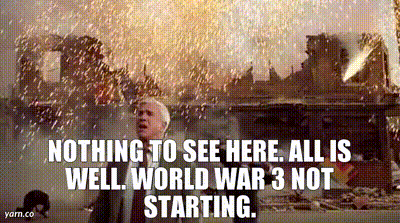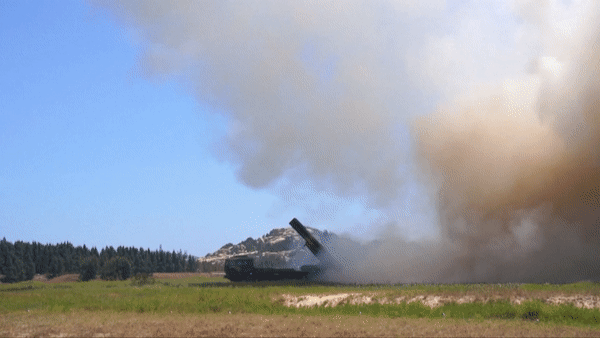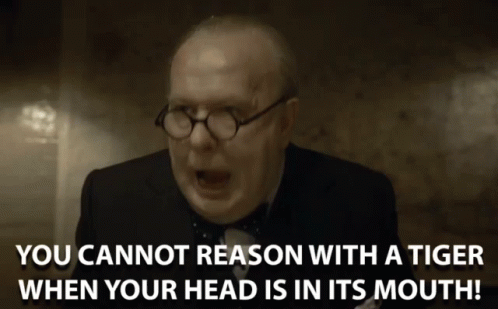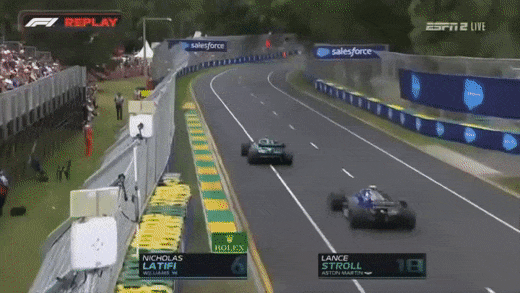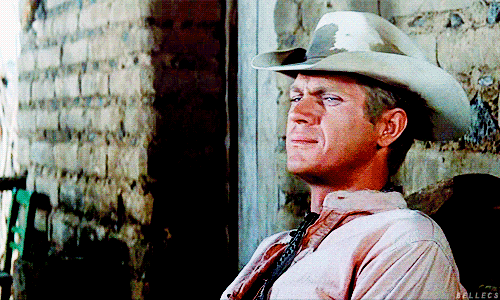The World in 2025: Less Apocalypse, More Plot Twists. Why WW3’s Not Coming For Christmas. Luxury Xmas edition!🎄 #237
More Nostradumbass Than Nostradamus.
Grüezi!
A geopolitical reality check for your holiday season. While everyone else is doom-scrolling about World War 3, we’re taking a clear-eyed look at what’s actually happening:
Inside this edition: Why World War 3 isn’t actually on your Christmas list (despite what headlines suggest), what military wargames tell us about Taiwan’s future (spoiler: it's complicated), and how China's playing the long game with more patience than a zen master. Plus, Churchill’s surprisingly relevant playbook for handling modern autocrats, and seven blind spots that could reshape 2025 while everyone's looking the other way.
Beyond the usual suspects of Trump, Putin, and Xi, we’re diving into the forces actually rewiring global power – from Africa's emerging tech corridor to the quiet revolution in clean energy. Consider this your antidote to both doom merchants and hopium dealers.
Stick a maraschino cherry in your pint of Avocaat and navigate the space between apocalypse and optimism, where reality usually lives – with his elves.
1️⃣ Is WW3 Just Around The Corner?
No, it isn’t. Merry Christmas!
Yaroslav Trofimov had an engaging if doom-laden WW3 piece in the WSJ this week asking if it has already started, and putting all of us on notice about the “axis of autocracies” – China, Russia, Iran and North Korea.
Except I don’t think he’s right. The alliance between China and Russia looks strong on the surface. But history and demographics suggest it’s Moscow that should be watching its back.
China hasn’t forgotten that Russia holds 1.5M square kilometres of territory of historically Chinese territory, including Vladivostok (which China still calls Haishenwei).
These were lost through “unequal treaties” in the 1800s, the “century of national humiliation” at the hands of powers like Imperial Russia that every Chinese student learns about in history class.
China provides 90% of semiconductors and 70% of machine tools for Russia’s military. This isn’t just support – it’s dependency. Russia is becoming technologically reliant on Beijing, weakening its long-term strategic position.
Russia’s Far East has just 6 million people. The neighbouring Chinese provinces? Over 100 million. Nature abhors a vacuum, and population pressure doesn’t decrease over time.
China’s playbook is patience. Look at Hong Kong. 156 years but never wavered from its claim. Now it has full control. That’s how revisionist powers play the long game.
Russia, trying to restore its empire in Ukraine, may be blind to its own exposure.
As Russia runs down its military, manpower, and money in Ukraine, it’s worth remembering that if you not invited to lunch, you might be on the menu.
2️⃣ Will China Invade Taiwan?
Wargames say … No.
Wargames aren’t just for teenage boys. A series of games, involving 85 military and regional experts, pitted players as China and US. The battlefield? Taiwan.
Here’s the results…
‘Best Case’ (15% chance) China lands enough troops to capture and hold a significant chunk of Taiwan’s coast. Works only if everything goes perfectly – invasion catches Taiwan off guard, China takes major ports/airbases fast, supply lines hold despite US attacks. Still, China likely only gets part of Taiwan, not the whole island.
‘Partial Success’ (25% chance) China takes and holds one or two cities. China could claim some success and try to negotiate from there. This is more achievable than taking a large area but still faces US/Taiwanese counterattacks.
Failed Invasion (45% chance) This happened most often. Initial landing might work, but by weeks 3-5, China can’t resupply its troops. Ships with reinforcements and supplies get sunk. Forces on Taiwan have to surrender or withdraw. A military and political defeat.
Nuclear Crisis (15% chance) If the invasion is failing, China might use nuclear weapons to try to force the US to back off. This is incredibly dangerous – it could lead to anything from a quick ceasefire to a devastating nuclear war.
D-Day planners put their odds of success at 70%. If you were a Chinese general, you might well look at these current odds and decide the odds are not enough.
War, though, is politics by other means, and politics can often achieve what war cannot…
3️⃣ Middle Power Meets Middle Kingdom
Diplomacy is no longer ‘crude.’
China-Saudi ties are undergoing a transformation that goes WAY beyond oil.
Chinese exports to Saudi Arabia hit $40.2bn in just 10 months. But it’s not just quantity – it’s quality. One-third of China’s $21.6bn greenfield investments focus on clean technology. This isn’t some old time oil partnership.
Why green technology? It has become the perfect bridge. It supports Saudi Vision 2030, lines up with Chinese export goals, and doesn’t trigger Western security concerns. Smart diplomatic engineering at work.
The financial integration is methodical. Cross-listed ETFs, $50bn in banking MOUs, and China’s first Middle East sovereign bond issuance. They’re building new financial architecture – carefully, deliberately, without rushing.
Saudi Arabia isn’t replacing the US – it’s less “picking sides” and more “increasing options.”
The real innovation here? China’s pivot from debt-led Belt and Road to trade and investment partnerships. They’re building manufacturing capacity, transferring technology, and creating special economic zones. Much more sustainable, much less controversial.
Watch green tech become China’s new vector for international influence. The combination of manufacturing scale and technological capability gives Beijing unique leverage in energy transitions.
How will a potential Trump administration handle a Saudi Arabia with more than one place to go? The kingdom’s carefully crafted “middle power” position could reshape regional dynamics.
4️⃣ Churchill's wisdom on dealing with dictators
A masterclass in realism.
At the height of the Munich Crisis in 1938, Churchill gave us a timeless framework for handling authoritarian states. His insight? You can have diplomatic relations without friendship.
“You must have diplomatic and correct relations, but there can never be friendship between the British democracy and [a] power which spurns Christian ethics...”
This wasn’t just talk. While Churchill fiercely opposed appeasing Hitler, he later allied with Stalin against Nazi Germany. Why? Because he understood the difference between necessary dealings and naive trust.
The lesson for today? We can trade or negotiate, but never forget the nature of a regime. Diplomatic relations? Yes. Blind trust? No.
Churchill’s biggest warning? Don’t fall into an authoritarian power’s “orbit and influence.” Sound familiar in today’s world of economic dependencies?
Modern translation: build trade relations but maintain independence. Engage but don’t become dependent. Talk but don’t trust blindly.
Churchill’s genius? Understanding that opposing authoritarian systems doesn't mean refusing to deal with them when necessary. It means dealing with them from a position of strength.
His approach gives us a 3-part framework for today:
Maintain strong deterrence
Keep diplomatic channels open
Preserve economic independence
Churchill never let moral clarity prevent practical necessity. But he also never let practical necessity blur moral clarity.
For today’s leaders, the message is clear: engage where necessary, deter where needed, maintain independence always.
In a world of complex threats, Churchill’s balanced approach – neither naive nor needlessly hostile – remains our best guide. That’s real realism.
5️⃣ The 7 Blind Spots Everyone’s Missing About 2025
There’s no formula in forecasting…
Forget Trump’s tariffs and Putin’s next move. 2025’s real action will happen far from the regular headlines. Here’s what the experts aren’t telling you.
1. The Migration Triangle
Brussels frets about boats in the Mediterranean, but they’re looking the wrong way. A new “migration triangle” between Africa, Europe and the Middle East is about to reshape the continent. With Europe desperate for workers, Africa feeling the climate squeeze, and the Middle East needing reconstruction muscle, we’re about to see population movements that will make 2015 look like a dress rehearsal.
2. The Battery Belt Bombshell
While pundits bang on about China’s trade wars, a quiet revolution is brewing in Eastern Europe. Poland to Romania is becoming the new Detroit – except it’s batteries, not cars. This “Battery Belt” isn’t just about green tech; it’s redrawing Europe’s economic map. Warsaw’s about to matter more than Berlin in ways nobody’s spotted.
3. The AI Military Divide
Everyone’s talking about ChatGPT, but the real AI story is in military tech. By 2025, we’ll see a chasm between armies that have cracked military AI and those still playing catch-up. Think of it as the new nuclear divide – except this time, it’s happening under everybody’s noses.
4. Japan’s Stealth Comeback
China’s property crisis has hogged the headlines, but Japan’s plotting the economic comeback of the decade. While everyone was looking the other way, they’ve sorted their immigration, mastered automation, and are about to show China how it’s done. Don’t bet against an economic sakura.
5. Africa’s Hidden Silicon Valley
Forget the usual Africa stories. There’s a tech corridor cooking between Rwanda and Kenya that’s about to give Silicon Valley a run for its money. They’re not copying California – they’re leapfrogging it, especially in digital cash and identity tech.
6. The Water Wars You Didn’t See Coming
The next resource wars will be about rivers and aquifers. Central Asia and the Nile Basin are about to become the new Middle East, except the bounty isn’t black gold – it’s clear blue water. And nobody’s ready for it.
7. The Real Space Race
NASA’s moon shots make good telly, but the real space story is decidedly more commercial. Insurance firms and factories are heading into low-earth orbit, creating a proper space economy that’s more “Industry” than “Interstellar”. It’s boring, practical and about to change everything.
While the BlueSky buzz fixates on Trump’s tweets or Putin’s chess moves, these seven shifts are quietly rewiring the global order. By the time the usual suspects catch up, the world will have moved on.
6️⃣ The 7 Hidden Forces Shaping 2025
Not that hidden if I’m talking about them…
Reading forecasts for 2025 reveals an intriguing gap between what’s grabbing headlines and what’s actually transforming the global order. Here’s what they’re missing – and what they’re getting right.
The Real Trump Effect
While pundits obsess over Trump’s bombastic promises, the deeper story lies in how American institutions will constrain and channel his agenda. Think selective disruption not wholesale transformation, tactical tariffs rather than economic revolution. The deep state? More thicker than deep.
The Third Nuclear Age
The sleeper crisis of 2025. We’re entering what experts call a “third nuclear age” – more unstable than the Cold War, with multiple players, guardrail free and mishap ready. The real danger isn’t just warhead counts, but the collapse of arms control frameworks that kept the peace for decades.
China’s Clean Green Technocracy Gambit
Beijing isn’t playing the game everyone expects. While analysts watch the South China Sea, China is quietly dominating the clean energy economy. Their solar panels and batteries are reshaping global industry more surely and more effectively than any military posturing.
The Next Financial Architecture
Here’s what everyone’s missing: 2025 marks the emergence of new financial systems outside Western control. The combination of digital currencies, alternative payment systems, and new trading blocs is quietly undermining dollar dominance.
Democracy’s Dismal Delivery Problem
The world’s worst political system except for all the rest is struggling to deliver the system shattering change voters seem to want. 2025 will test whether democratic governments can solve practical problems faster than autocracies. Or whether voters will continue to elect flirt with leaders who might test democracy to destruction.
The Climate-Security Nexus
Climate shifts are already rewiring geopolitics. Water scarcity, agricultural disruption, and mass migration are creating new alliances and conflicts that traditional geopolitical analysis misses.
The Tech Wild Card
While AI grabs attention, ultra-high-voltage grids delivering renewable power to where hungry data centres need it might just be the thing that reminds us that innovation can also apply to infrastructure.
Bottom Line? 2025 isn’t about dramatic ruptures but deeper structural shifts. The real action isn’t in Washington’s political performance theatre or Beijing’s opaque announcements – it’s in the quiet revolution in energy, finance, and technology that’s reshaping global power from the ground up.
7️⃣ And Finally… A BIG Thank You!
Thanks for keeping me company through the year, I appreciate it.
A special thanks to the FT’s very kind Isabel Berwick for her Seven Things shout out.
And remember what really matters this Yuletide…
Merry Christmas!
See you in 2025.
Adrian
Military and Security Developments Involving the People’s Republic of China
China’s ties with Saudi Arabia buoyed by green tech
Churchill: “A total and unmitigated defeat…”
Blinken interview with the Lowy Institute
Best of Further Reading 2024: FT journalists pick their favourite non-FT articles of the year





